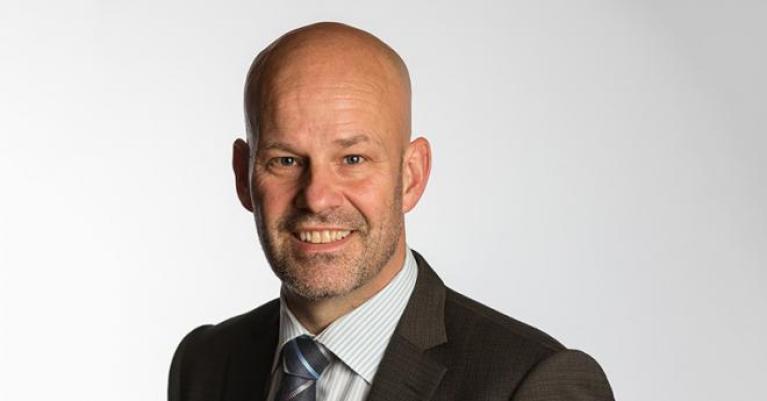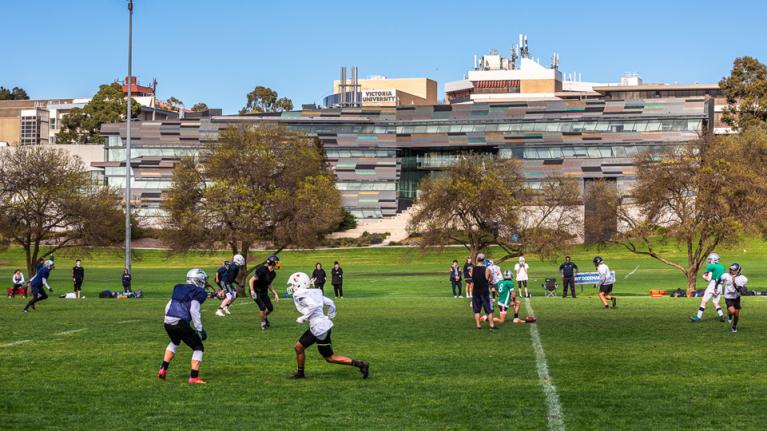Keeping pace with emerging challenges in sport integrity: a Q&A with Hans Westerbeek
The challenges to maintain integrity in sport – including the rise of online betting and safety in community sport, as well as emerging developments like performance-enhancing bio-engineering technologies – are increasingly complex.
We sat down with Hans Westerbeek, Professor of International Sport Business and Head of the Sport Business Insights Group at Victoria University, to discuss sport ethics in 2023, the FIFA Women’s World Cup, and what ‘athlete power’ means in the context of sponsorship and ethics.

Q&A with Hans Westerbeek
How would you describe sports integrity in a sentence? What does it take to maintain it?
The integrity of sport is safeguarded by applying sports’ foundational principles: inclusion, equality, fairness, diversity and togetherness.
Elite sport can generate billions of dollars in revenue, which leaves it open to exploitation, corruption and abuse. This value explosion has led to the creation of Sports Integrity Australia in 2020 as an acknowledgement that maintaining the integrity of sport is becoming a complex challenge.
What are the major challenges facing sports ethics in Australia?
A major challenge is the rise and influence of betting companies. Digital technology has enabled the multiplication of betting opportunities, and they now have endless reach to customers and fans on phones and mobile devices.
Other challenges include ensuring that community sport is safe, diverse, and inclusive; and growing the participation of females in sport at all levels, and from playing to administration.
A major challenge will be the development of performance enhancing bio-engineering technologies, which could extend beyond performance enhancing substance abuse and manipulate the human genome in order to increase performance.
What are the biggest technological factors that you see emerging that impact the behaviour of people involved in sport?
Sports performance technology is influencing all levels of sport. At the elite level, machine learning and artificial intelligence can interpret data flows and provide actionable insights for athletes and coaches. You can see technology becoming a specialised assistant, coach, or strength and conditioning trainer in sport.
The technologies that underpin sports marketing are also advancing. Customer data platforms can integrate data about millions of fans, their interests, passions and behaviours, allowing sports marketeers to communicate personalised offerings to mass audiences at the touch of a button.
With the FIFA Women’s World Cup coming up in July, what opportunities does this create for sport development & sport business in Australia?
The Women’s World Cup will be the biggest sporting event in the world in 2023, with a potential reach of two billion people.
It’ll be part of the green and gold run-up to the Olympic Games in Brisbane 2032; but right now it presents an amazing opportunity in football, particularly for women and girls.
The critical challenge will be to extend the opportunity beyond just the 29-day event and use the World Cup to create a long-lasting legacy in female representation in football. This would include establishing systems and programs to improve infrastructure and coaching and achieving more balanced representation in football and sport governance bodies.
Do events of this scale create bigger integrity & reputational risks than smaller events?
A bigger event will have wider consequences if things go wrong; but it’s crucial to be aware of the significant impact on individuals and communities that integrity and ethical breaches can have in every sporting environment – including community clubs.
There is increasing evidence about the significant impact that unsafe playing environments have on the lives of young people growing up, and for whom sport should be an environment in which they feel included, respected and safe.
Can you describe ‘athlete power’ in the context of sponsorships & ethics?
The influence of athletes, relative to the organisations that employ them, is increasing significantly. Real Madrid has over 200 million Instagram followers, but Cristiano Ronaldo has almost 700,000,000. The voice of athletes, and their power to influence, advocate, and condemn – but (they can) also abuse – is significant.
It’s likely that we’ll see a shift in sponsorships from organisations to athletes (as individuals or in collectives) and increasing athlete ownership of sport-related initiatives and organisations.
‘With great power comes great responsibility’ and athletes will have to realise and better prepare themselves for that power of influence.
What are you most excited to see in the context of sport business in the next couple of years?
Global sport business is going through an era of value explosion, facilitated by digital technology, products and reach. Resources can be gained and accumulated through sport and participating athletes.
This is both exciting and concerning. More resources create exciting opportunities and an ability to invest resources for positive outcomes. My concern, and it’s realistic, is that many people will seek to accumulate those resources through illegal, corrupt or misdirected means.
That’s why institutions like Victoria University have prioritised the development of sport integrity and ethics programs and intensified collaborations with organisations such as Sport Integrity Australia to contribute to safe, fair, diverse and inclusive sport.
